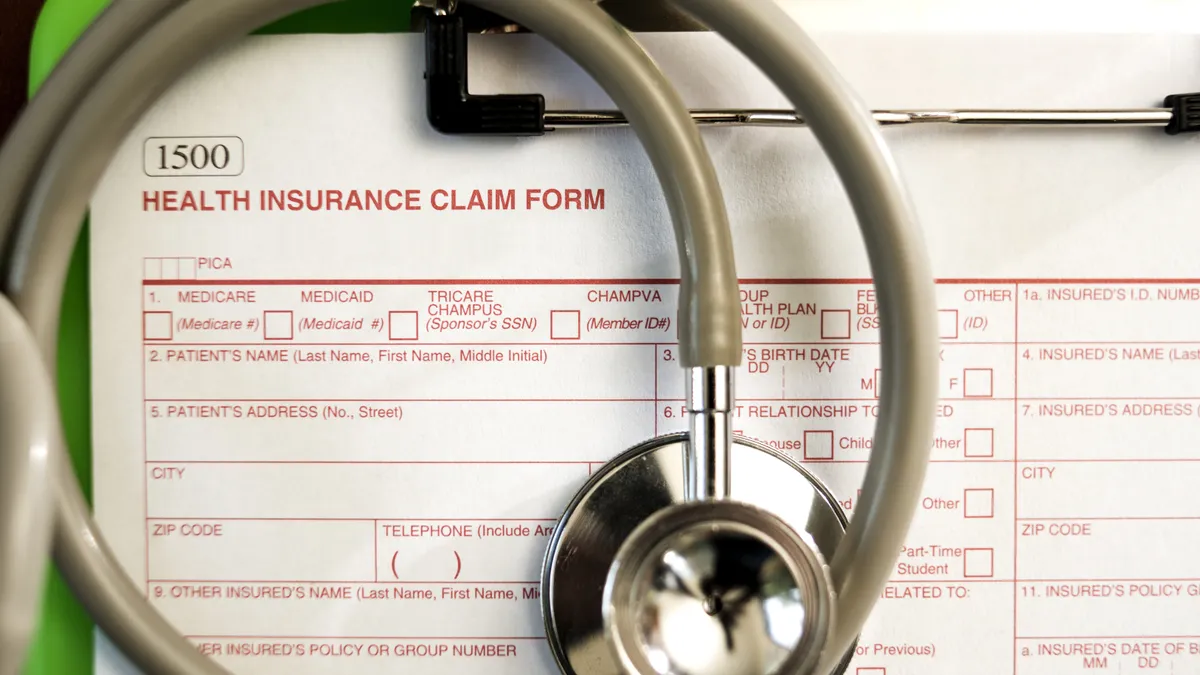Dive Brief:
- A standards committee tasked with developing and maintaining the electronic claims form used by public and private insurers formally recommended Tuesday that a field be added for unique device identifiers. But even if CMS adopts the advice, implementation is likely years away.
- The organization, X12, floated requiring UDIs when a high-risk device is implanted into a patient or when it is known that a high-risk implantable device is removed due to safety concerns about premature failure.
- The claims form, which currently does not include data noting the brand or model of a medical implant, is updated infrequently with changes being adopted roughly once a decade, according to Ben Moscovitch, project director for health information technology at The Pew Charitable Trusts.
Dive Insight:
FDA efforts to use the National Evaluation System for health Technology to improve postmarket safety of medical devices may be boosted if UDIs are eventually included in claims data. NEST got off the ground in 2016 with funding from FDA.
"NEST relies on many data sources, one of which is claims, and therefore device identifier information from claims could also be utilized in that way," Moscovitch said. "Another example, [FDA's] Sentinel, relies primarily on claims data for analysis, and Congress has instructed FDA to expand the Sentinel system to medical devices."
If a UDI is captured when a device is implanted, health providers will be able to pick up on complications like adverse events related to metal-on-metal hip replacements more quickly, Joe Drozda, the director of outcomes research at Mercy Health, told MedTech Dive.
"I want to celebrate this and I'm glad we've gotten to this point, but it's taken a long time and I'm excited to have this move through the rest of the process expeditiously," Drozda said.
The potential change will be especially helpful tracking safety issues that get obscured when a patient has a high-risk device implanted at one hospital and taken out at another, according to Jove Graham, an associate professor at the Center for Pharmacy Innovation and Outcomes at Geisinger Health.
"That ability to know and have a place to put the device on the claim is just a very important and huge step forward," Graham told MedTech Dive.
The proposal from X12 comes weeks after an executive order by President Donald Trump instructed HHS to use Medicare claims data to give physicians greater insight into medical practices that may pose increased risks to patients within a year.
In 2016, the HHS Office of Inspector General found the lack of medical device information in patient claims forms impedes the ability of CMS to identify and track Medicare costs associated with replacing recalled or defective devices.
"We believe that CMS should collaborate with the Accredited Standards Committee X12 to include the device identifier (DI) portion of the Unique Device Identifier (UDI) for implantable devices on the next version of the claim form," HHS OIG said in a memo.
X12 is collecting online public comments until Nov. 30, and then plans to hold a forum to discuss revisions to the policy before finalizing it.
Eventually, CMS will likely undergo rulemaking to implement the recommendation, according to Moscovitch.












